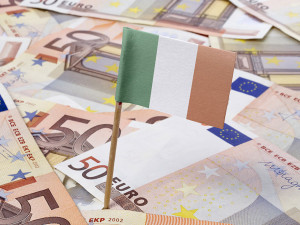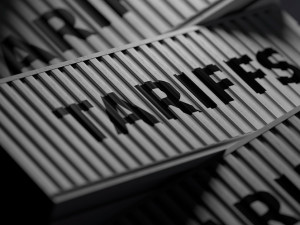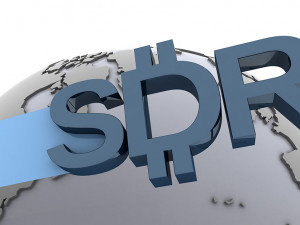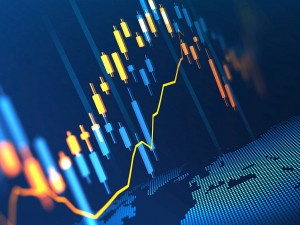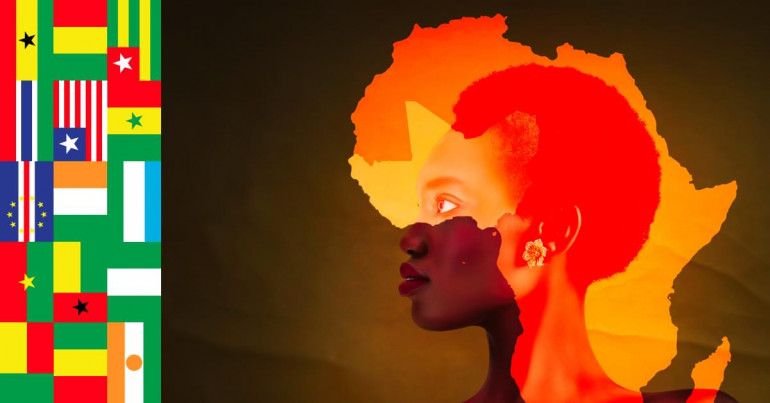
The eco is a proposed currency set to be introduced in Africa, specifically the 15 countries that are part of the Economic Community of West African States (ECOWAS).
The introduction of this currency is part of a wider economic movement in the continent to obtain more monetary control and bring economic stability, as is the introduction of the African Monetary Union and the development of the African Central Bank.
Of the 15 African nations within ECOWAS, eight use the CFA franc, a currency still controlled by the French treasury and European Central Bank (ECB) to this day.
Not only will a proposed currency provide economic independence to these countries, but it’s hoped that it will foster economic integration between African nations. Looking to the future, it’s also hoped that it will potentially attract other nations into adopting the currency, similar to the euro and the eurozone. Whether Africa will ever have one central currency is unknown, but it’s likely if it ever will, it will be the eco.
Ivory Coast was set to trial the currency in 2019, but was unfortunately halted by the Covid-19 pandemic. The release of the eco currency is now planned for 2027.

Origins of the eco
There have been several proposals of a one African currency, the first being back in 1983. But discussion became much more of a reality after the year 2000 when the euro was successfully introduced, as there was not only a change to the currency of the French treasury, but a live demonstration that a central currency could work.
Due to old colonial ties, 14 African countries are under the CFA franc (a variation of the French franc), which was introduced to stabilise the African nations post independence, but to critics, also a discrete tool of neocolonialism.
The CFA franc is split into two currencies, the Central African CFA franc and the West African CFA franc.
The six countries currently using the Central African CFA franc are:
The eight countries currently using the West African CFA franc are:
Post 2000, with the French franc being replaced for the euro, the necessity became even more obvious for Africa to establish a central currency. The West African Monetary Zone (WAMZ) was formed; a group of six countries formed within ECOWAS specifically to plan a common currency.
The countries which share the CFA franc are part of a separate organisation within ECOWAS known as the Union Économique et Monétaire Ouest-Africaine (UEMOA) or the West African Economic and Monetary Union (WAEMU), who will be the first countries to trial the eco.
The 15 countries of ECOWAS, and the respective WAMZ and UEMOA nations:
ECOWAS’s primary objective is not a common currency, but to create economic prosperity in the region and raise living standards – the eco is simply part of this mission.

Challenges facing the eco currency
Although a roadmap for the eco is in place, significant challenges still lie ahead.
Introduction of the currency has already been postponed six times (in 2003, twice in 2005, 2009, 2015 and 2019) so another postponement for the currency could happen. There are fears that yet another postponement could damage the credibility of the project beyond repair, and cause its abandonment.
In a report from 2016 from the African Development Bank Group (AFDB), a “Big Bang” option proposed for 2020 may be the only way forward, which involves all ECOWAS countries adopting the currency at the same time.
In order to ensure a smooth transition to the currency, the UEMOA has set four primary conditions for a country to qualify for the eco:
- A single-digit inflation rate at the end of each year
- A fiscal deficit of no more than 4% of the country’s GDP
- A central bank deficit financing of no more than 10% of the previous year’s tax revenues
- Three months of reserves to cover imports
So far, most of the hiccups in the introduction of the eco have been due to ECOWAS countries not meeting these conditions. Only Ghana has managed to meet this criteria.
Tensions within ECOWAS
There is also division within ECOWAS, generally marked by anglophone countries and francophone countries. In 2020, Nigeria, Gambia, Ghana, Liberia, Sierra Leone (English-speaking) and Guinea, rejected the currency, claiming that the remaining francophone countries had made decisions that were “not in line with decisions of the Authority of Heads of States and Governments of ECOWAS.”
The 2027 roadmap has restored the faith in the currency, but the 2020 rejection has exposed a rift between ECOWAS nations, which might crop up again.
There is also a clear imbalance of wealth and economies between ECOWAS nations, which leads some to suggest that ideas of a balanced union are far-fetched. Two-thirds of ECOWAS’s total GDP is Nigeria, the highest GDP in Africa in 2022 – Guinea-Bissau for example has one of the lowest.
Nigeria is also not under the CFA franc, and therefore has less of an incentive to adopt the eco, even proposing five of its own “non-negotiable” terms. It’s clear that Nigeria would dominate the monetary union, which might not be desirable for other ECOWAS nations.
Scepticism of the eco
Some economists are sceptical about whether it’s the solution needed, and propose that economies need to be stabilised before a common currency can be considered. As demonstrated in a report from DW, many claim that “ECOWAS could achieve greater trade and financial integration, with or without a currency union.”
Nigeria and Ghana have also gone ahead with their own CBDCs, which some say threatens the project, and demonstrates a lack of faith in the eco.

Benefits of the eco currency
Despite the challenges, the eco has huge economic and political potential, and a successful implementation could mark the beginning of a new economic future for Africa.
As the AFDB report remarks, “the member countries of ECOWAS have serious externally induced monetary problems that no country alone can resolve.” It therefore could be argued that the eco is a necessity for economic development.
Politically, the eco could represent a monumental shift in African sovereignty. The introduction of the eco has also pushed a bill ratified in 2020, which states that countries under the CFA franc will no longer have the obligation to hold half of their deposits in the French Treasury.
However, France still maintains a fixed exchange rate with the euro (1 euro = 655.96 CFA francs), which means that it still operates as a guarantor of the currency. The eco will most likely break this dependence, and allow ECOWAS nations to operate independently.
The eco may happen slowly, and faces huge challenges, but if the roadmap is followed without disruption, then Africa is set for a new currency in 2027, which could potentially spread across the continent. But for many, the eco is still a pipe dream.
For more currency news and insight into the ever-changing world of currency, make sure to stay up to date with our Expert Analysis, as well as our Market Commentary.
Caleb Hinton
Caleb is a writer specialising in financial copy. He has a background in copywriting, banking, digital wallets, and SEO – and enjoys writing in his spare time too, as well as language learning, chess and investing.
